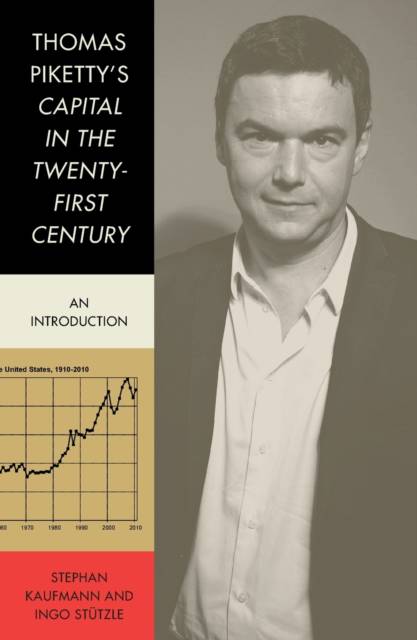
- Retrait gratuit dans votre magasin Club
- 7.000.000 titres dans notre catalogue
- Payer en toute sécurité
- Toujours un magasin près de chez vous
- Retrait gratuit dans votre magasin Club
- 7.000.0000 titres dans notre catalogue
- Payer en toute sécurité
- Toujours un magasin près de chez vous
Thomas Piketty's Capital in the Twenty-First Century
An Introduction
Stephen Kaufmann, Ingo StützleDescription
US Nobel Prize-winner Paul Krugman described Thomas Piketty's Capital in the Twenty-First Century as "perhaps the most important book of the last decade." It has sparked major international debates, dominated bestseller lists and generated a level of enthusiasm--as well as intense criticism--in a way no other economic or sociological work has in a long time. Piketty has been described as a new Karl Marx and placed in the same league as the economist John Maynard Keynes.
The "rock star economist's" underlying thesis is that inequality under capitalism has reached dramatic levels in the last few decades and continues to grow--and that this is not by chance. A small elite is making itself richer and richer and acquiring everincreasing levels of power.
Given the sensational reception of Piketty's not-so-easily digested 800-page study, the question as to where the hype around the book comes from deserves to be asked. What does it get right? And what should we make of it--both of the book itself and of the criticism it has received? This introduction lays out the argument of Piketty's monumental work in a compact and understandable format, while also investigating the controversies Piketty has stirred up. In addition, the two authors demonstrate the limits, contradictions and errors of the so-called Piketty revolution.
Spécifications
Parties prenantes
- Auteur(s) :
- Traducteur(s):
- Editeur:
Contenu
- Nombre de pages :
- 96
- Langue:
- Anglais
Caractéristiques
- EAN:
- 9781784786144
- Date de parution :
- 01-08-17
- Format:
- Livre broché
- Format numérique:
- Trade paperback (VS)
- Dimensions :
- 130 mm x 198 mm
- Poids :
- 90 g

Les avis
Nous publions uniquement les avis qui respectent les conditions requises. Consultez nos conditions pour les avis.






